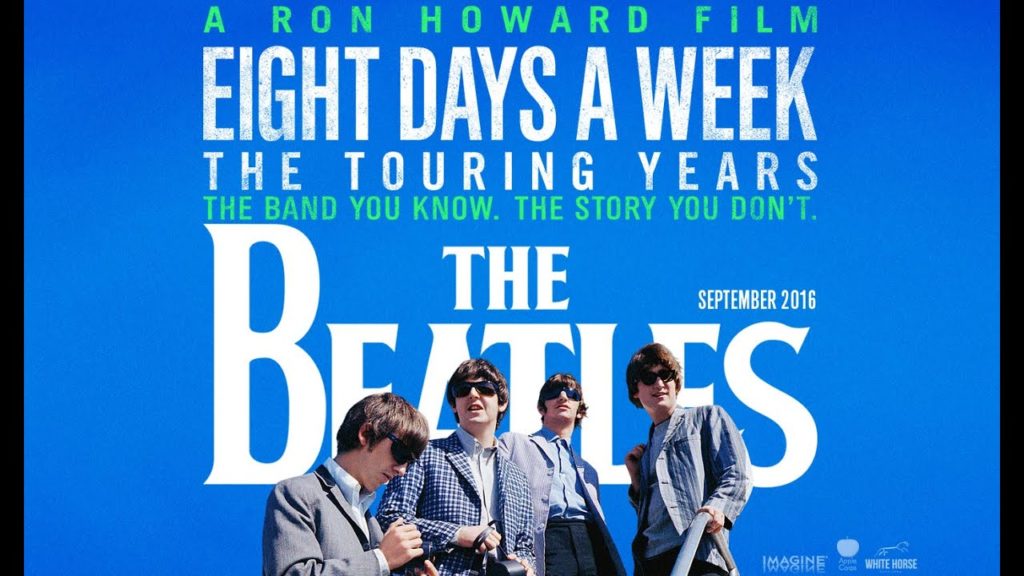“I’ve always been famous, it’s just no one knew it yet.”
― Lady Gaga
In the 2017 Forbes article One in Four Millennials Would Quit Their Job to Be Famous, darkness is exposed in those young whippersnappers. How bizarre to only care about empty fame as a goal in life. Ah, if only I could look down my nose at that demographic, and not evaluate my own desires with similar disdain. Wouldn’t it be nice if I had the same inner glee with four “Likes” compared to 100? Or think of how we frame an autograph of a beloved sports hero. Maybe we like to brush up against greatness as a way to prop up our lack of perceived luster.
I watched the 2016 Ron Howard Beatles documentary Eight Days a Week The Touring Years over the weekend. I’d seen it before, but this time the spectacle of Beatlemania stirred new thoughts on the idea of fame. I can’t think of another cultural event that rivals this as ground zero for celebrity worship. In the 50 years since the Liverpool lads exploded on to the global scene, our devotion to stardom has yet to wane. Now the newest option ― social media influencer ― has expanded the fold. I like to get lost in nerdy YouTube videos about production techniques and how iconic guitar and drum sounds were created. This leads down rabbit holes featuring video gems like this of 10-yr old Yoyoka playing Led Zeppelin. When I hop over to this iammarlhy Instagram feed, I cringe. Talented and attractive? Yes. Yet all 179 posts are of no one other than dear old self, and the majority are of a come-hither vibe. No group pics with friends, no beautiful sunsets, not even a food shot. She’s not alone in the “me”-ism of it all. You can find 10,000 other fitness men and women on social media doing their own version with semi-nude selfies to gain attention.
No doubt The Beatles talent was groundbreaking. Volumes have been written on the multitude of ways they influenced melody, lyrics, production and concerts as landmark events. The thing that stood out to me on this viewing was actress Sigourney Weaver discussing how she had to be perfectly dolled-up when attending the show. She knew John would fall in love with her among the mass of fans. She laughs now, but doesn’t her desire speak to a deeper place in all of us? The craving to be known, to be loved, to be recognized. Yes, all healthy aspirations up to a point, but also a festering emptiness that shows our dissatisfaction with life and self.
The Beatles story peers into our depravity in two events in their history, which unlike a non-famous person, becomes our history. Many of us can recall exactly where we were upon hearing the news of John Lennon’s 1980 murder by unemployed security guard Mark Chapman, who later said he was incensed by Lennon’s lifestyle. His dissatisfaction and mental illness moved him to horrific action, as did a less publicized stabbing of George Harrison in his home in 1999. A NYTimes article said “evidence emerged that the assailant may have harbored a dangerous obsession with the band.”
It’s easy to dismiss the those individuals as extreme examples. But we tell on ourselves when we check our “Like” status as mentioned above. We’re all on the “spectrum” at some level. My personal allure with fame is a delicate balance between competency and empty narcissism. Yes, I want to be good at any endeavor or project I attack. All of us should have a robust desire to max out our aptitudes and talent with elbow grease and grit. The Forbes article speaks to the current zeitgeist, a different measure not based on merit, giving rationale to the hunger.
“In a time when we’ve elected a man who has ‘fired’ Gene Simmons and Dennis Rodman on national television to the highest office in the land, complete with all its trappings of immense global power, why the heck wouldn’t millennials prioritize notoriety?”
When I turn to scripture, I’m reminded of how our yearning for fame is a symptom of our rooted need for healing. Every individual on the planet struggles with a measure of brokenness, some with obvious physical ailments, others with cracked psyches. In Luke 6:17-19 there are groups of people as hopeful as The Beatles’ fans.
“He went down with them and stood on a level place. A large crowd of his disciples was there and a great number of people from all over Judea, from Jerusalem, and from the coastal region around Tyre and Sidon, who had come to hear him and to be healed of their diseases. Those troubled by impure spirits were cured, and the people all tried to touch him, because power was coming from him and healing them all.”
He went down with them and stood on a level place. Reminiscent of a stage, where large crowds congregate in united hope to hear powered sounds that might heal something inside. Not only millennials, but all of us for two millenniums have been looking for someone to restore us with the sound and power of his or her words. While I am a rabid fan of The Beatles, I hope my adoring worship is reserved for that one Israeli who satisfies my misguided hopes that fame can never fulfill.
See ya next time. ML

